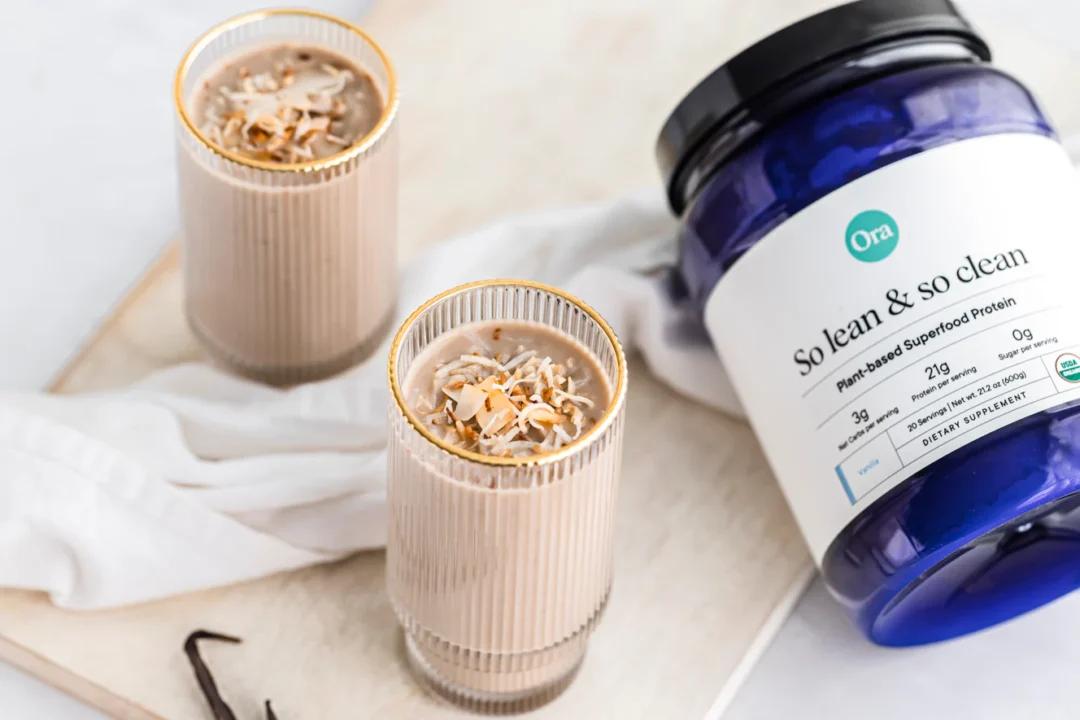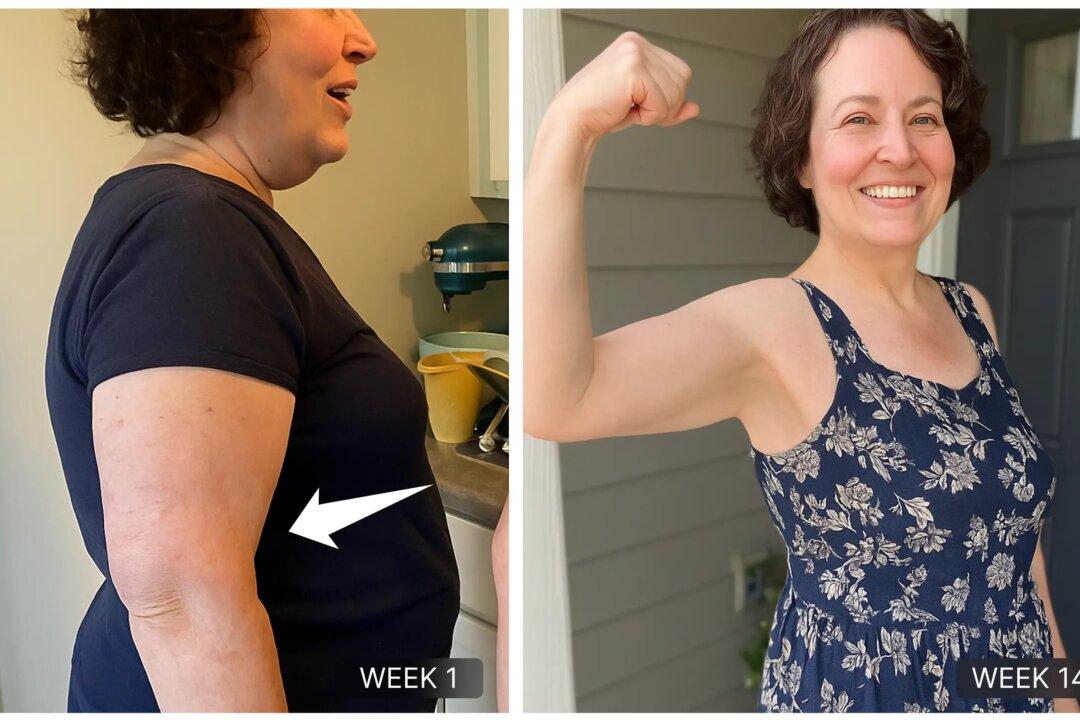In Partnership With Ora
Are You Truly Getting Enough Protein? Studies Find More Protein is Required to Support Weight Loss and Muscle-Building
Protein is more than just a buzzword in the world of nutrition; it’s a crucial component that can significantly impact weight loss, metabolism, and muscle building. Some studies suggest that the traditional Recommended Dietary Allowance (RDA) for protein may be insufficient for those aiming to achieve these health goals. Understanding the role of protein in your diet and ensuring adequate intake can dramatically improve your fitness journey.The Evolving Understanding of Protein Needs
Protein is essential for muscle repair, enzyme and hormone production, and immune system support. Traditionally, the RDA for protein has been considered sufficient for the average person. However, emerging research indicates that these recommendations may fall short for those focused on weight loss, metabolism, and muscle building. Studies by Harvard Health and the National Institutes of Health (NIH) suggest aiming for 1.2 to 2.0 grams of protein per kilogram of body weight per day, significantly higher than the current RDA of 0.8g per kilogram [1][2]. Chart showing daily recommended protein intake vs. a higher intake based on recent research (Ora)
Chart showing daily recommended protein intake vs. a higher intake based on recent research (Ora)The Role of Protein in Weight Loss, Metabolism, and Muscle Building
Protein plays a pivotal role in weight loss, metabolism, and muscle-building in several ways:- Increased Satiety: Protein is more satiating than carbohydrates or fats, which can help reduce overall calorie intake by keeping you feeling full longer. This makes it easier to stick to a calorie-controlled diet [3].
- Thermogenic Effect: Protein has a higher thermogenic effect compared to fats and carbohydrates, meaning the body burns more calories digesting and metabolizing protein. This can boost your overall metabolism and aid in weight loss [4][5].
- Muscle Preservation: During weight loss, it’s crucial to preserve muscle mass to maintain a healthy metabolism. Adequate protein intake helps prevent muscle breakdown, ensuring that most of the weight lost comes from fat stores rather than muscle tissue [1][6].
- Muscle Repair and Growth: Protein provides the necessary building blocks (amino acids) for muscle repair and growth, especially after resistance training. Higher protein intake supports greater gains in muscle mass and strength [5][7].
- Improved Recovery: Consuming protein after workouts can enhance muscle recovery, reducing soreness and preparing your body for the next training session [5][7].
Practical Tips for Increasing Protein Intake
To ensure you’re getting enough protein, consider these practical tips:- Incorporate Protein-Rich Foods: Include more protein-rich foods in your meals, such as beans, lentils, quinoa, nuts, seeds, and tofu.
- Use Protein Supplements: Adding a high-quality protein powder to your diet can help meet your protein needs, especially if you have a busy lifestyle. Try blending a protein powder into your smoothies, oatmeal, or baked goods.
- Balanced Meals: Ensure each meal contains a source of protein to maintain steady energy levels and support muscle repair throughout the day.
- Smart Snacking: Opt for protein-rich snacks like hummus with vegetables, Greek yogurt, or protein bars made with clean ingredients.
 Protein shakes are an easy and effective way to up your protein intake (Ora)
Protein shakes are an easy and effective way to up your protein intake (Ora)Are Protein Powders a Good Way to Hit My Protein Intake Goals?
Selecting the right protein powder can significantly impact your weight loss and muscle-building efforts with relatively low effort. However, not all protein powders are created equal. Here’s what to look for in a quality protein powder that will help you hit your goals faster while supporting your overall health:- High Plant Protein Content: Opt for a protein powder that provides a substantial amount of plant-based protein per serving. Plant-based proteins are often easier to digest and can provide additional nutrients such as fiber, vitamins, and minerals.
- Low Carbohydrates: Choose a protein powder with low net carbohydrates, especially if you’re following a low-carb or ketogenic diet. Keeping it under 5g net carbs per serving is a good guideline for this.
- No Added Sugars: Avoid protein powders with added sugars, as they can add unnecessary calories and lead to blood sugar spikes.
- No Artificial Ingredients or Fillers: Stay away from protein powders that include artificial sweeteners, flavors, and fillers. These can cause gut irritation and lead to bloating and discomfort.
- Digestive Enzymes: Look for protein powders that include digestive enzymes to enhance nutrient absorption and reduce digestive discomfort.
Our supplement recommendation for supporting daily protein intake:
Ora’s Protein Powder is a standout choice for those seeking a high-quality, plant-based protein source. Crafted by a chef, made from organic ingredients, and free from artificial additives, it ensures you hit your protein goals without sacrificing flavor and quality. Ora’s Protein Powder is extremely low-carb, high in protein and contains no sugar, and the inclusion of digestive enzymes helps your body break down and absorb key nutrients more efficiently, making it gentler on your digestive system and allowing your body to utilize the protein more effectively.Understanding the importance of protein and the benefits of clean, plant-based sources is essential for achieving your fitness goals. By making informed choices and incorporating high-quality protein into your diet, you can support your body’s needs and promote a healthier, more vibrant life. For a convenient and effective protein boost, consider adding Ora’s Protein Powder to your routine. Explore more about this product and make a purchase here.
As an Epoch Times subscriber, you get 30 percent off your first Ora order, automatically applied at checkout - learn more here.
Sources:
- How much protein do you need every day?
- NIH: Dietary Protein Intake and Human Health
- Harvard Health: The truth about metabolism
- Mayo Clinic: Are you getting too much protein?
- WebMD: How Much Protein Do You Need?
- Harvard T.H. Chan School of Public Health: Protein
- Ora Organic’s Protein Powder
THE CONTENT IN EPOCH HEALTH IS NOT INTENDED TO BE A SUBSTITUTE FOR PROFESSIONAL MEDICAL ADVICE, DIAGNOSIS OR TREATMENT. NEVER DISREGARD PROFESSIONAL MEDICAL ADVICE, OR DELAY IN SEEKING IT, BECAUSE OF SOMETHING YOU HAVE READ IN THIS PUBLICATION. NEVER RELY ON INFORMATION IN THIS PUBLICATION IN PLACE OF SEEKING PROFESSIONAL MEDICAL ADVICE. EPOCH HEALTH DOES NOT RECOMMEND OR ENDORSE ANY SPECIFIC TESTS, PRODUCTS, PROCEDURES, OPINIONS OR OTHER INFORMATION THAT MAY BE PROVIDED IN THIS PUBLICATION. SEE ADDITIONAL INFORMATION.






